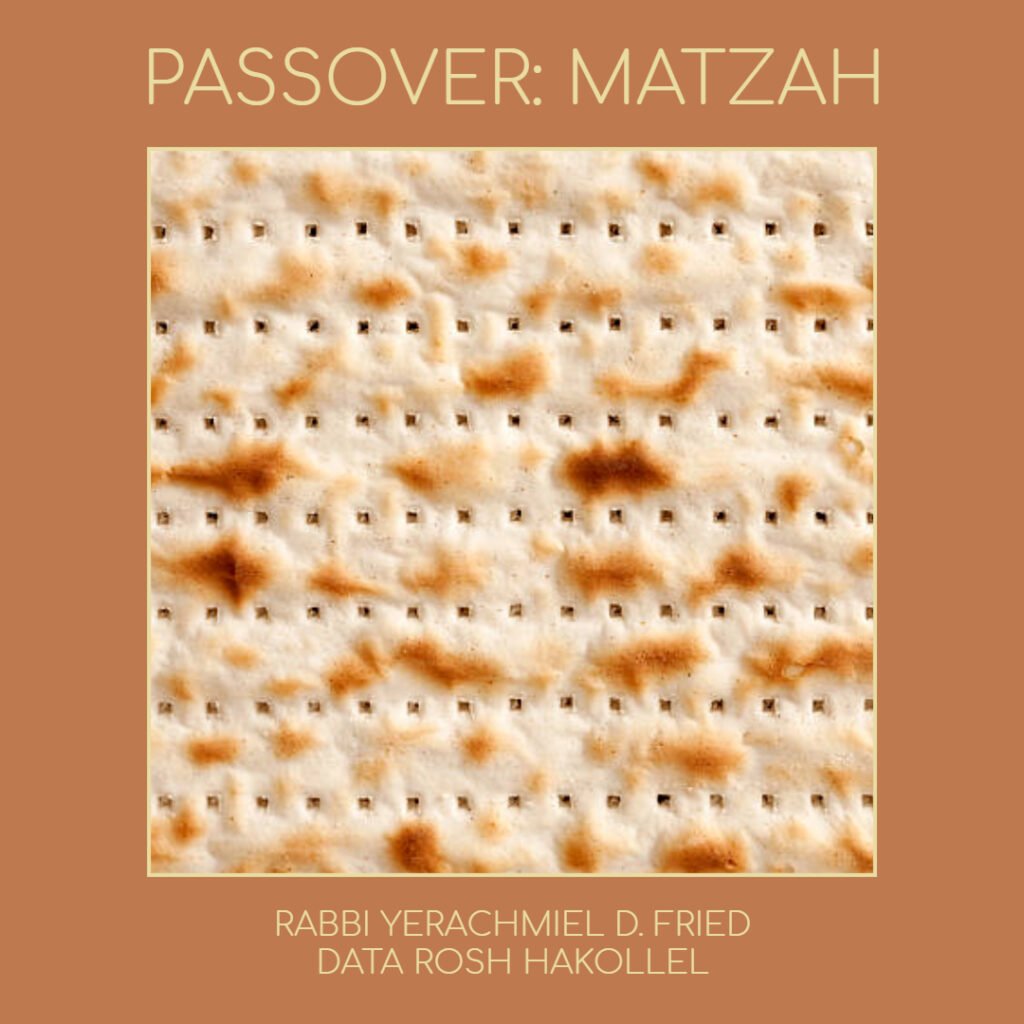Ask the Rabbi. Passover: Matzah. By Rabbi Yerachmiel D. Fried

Dear Rabbi Fried,
The Jewish kids in our class were asked to give explanations on the symbolisms of the Passover rituals, and I was given matzah to explain. Could you please help me out on this?
Kimberly B.
Dear Kimberly,
I’ll try to provide you with a few insights, and best of luck with your presentation!
Eating matzah and refraining from leavened bread are defining features of the holiday of Passover. The Torah says “Seven days shall you eat unleavened bread (matzah)…you shall observe the Festival of Matzos; for on this same day, I brought you out of the land of Egypt. Therefore, you shall observe this day throughout all your generations as an eternal statute. In the first month, on the fourteenth day of the month in the evening, you shall eat unleavened bread, until the twenty-first day of the month in the evening…. They baked the dough that they took out of Egypt into unleavened cakes, for they could not be leavened, for they were driven from Egypt for they could not delay, nor had they made any provisions for themselves.” (Exodus12:15-18, 39).
One meaning of this mitzvah is that matzah is referred to in the Torah as the “bread of affliction” or “poor man’s bread” (Deuteronomy16:3). It does not have the same enjoyable characteristics of delicious, risen bread and instead commemorates the slavery we were subjected to for over 200 years in Egypt.
A deeper understanding of this is that we ate the bread of slavery until the time we were redeemed from Egypt. Until that moment we were truly downtrodden, powerless slaves. We, materially, contributed nothing to our redemption. It was not a bold revolt, an exhibition of bravery or military cunning. Only G‑d Himself redeemed us. The matzah teaches us this lesson of humility and gratitude to G‑d who performed this act of love and kindness to us; we couldn’t have done it without Him.
The matzah also reminds us of another reason for gratitude. The Jews were enslaved for 210 years and suffered not only physically, but spiritually as well. Many of them lost the religion of their ancestors and began worshipping foreign idols, having given up the hope for redemption after so long a time. They wanted to mix in and become part of the local culture.
The Kabbalists describe the spiritual state of the Jews as having sunk to the 49th level of impurity. Had they stayed in Egypt even one extra moment, they would have sunk to the 50th and final level of impurity, the spiritual point of no return. So, G‑d took them out at the very last moment, with no time to tarry even to let their bread rise. To commemorate that spiritual legacy we eat the matzah.
One more point related to this is the following. The chametz, or leavened bread, as opposed to matzah, has risen above its natural self. Matzah is the natural state of the flour and water. When given time to rise, especially with the addition of yeast, the flour rises far beyond itself. The Kabbalists explain that this is alluding to our filling ourselves with our inflated egos, which allow us to think of ourselves far beyond what we really are.
Haughtiness is the root of all bad character traits and often can cause the downfall of a person. Many powerful nations in world history began their downfalls when they became haughty over their power and dominion.
The chametz signifies the haughtiness we need to distance ourselves from. Eating matzah reminds us of the uninflated “real self.” It is that humility which inspires the true Jewish persona.
Best of luck bringing these messages to your classmates, and have a joyous, meaningful and memorable Passover holiday, to you and all the readers!




